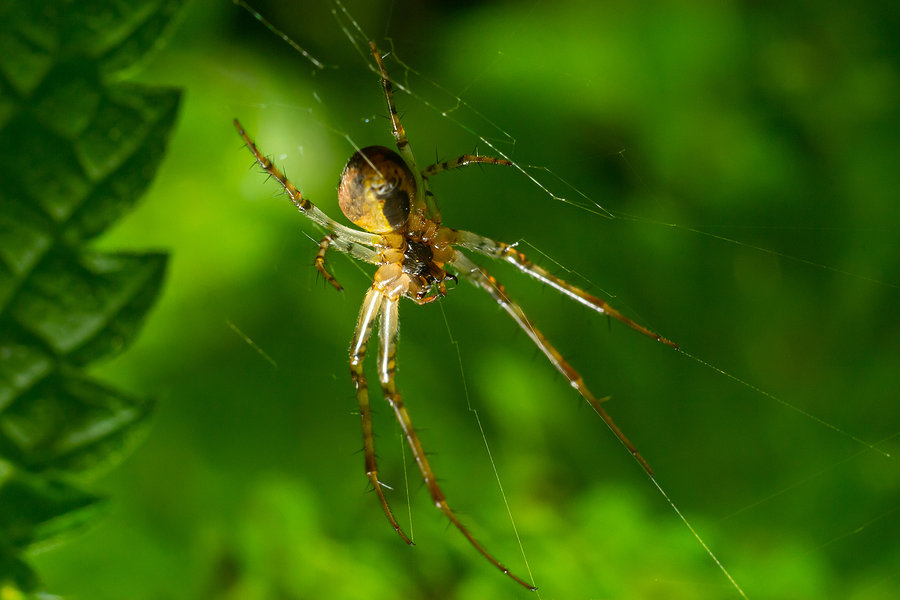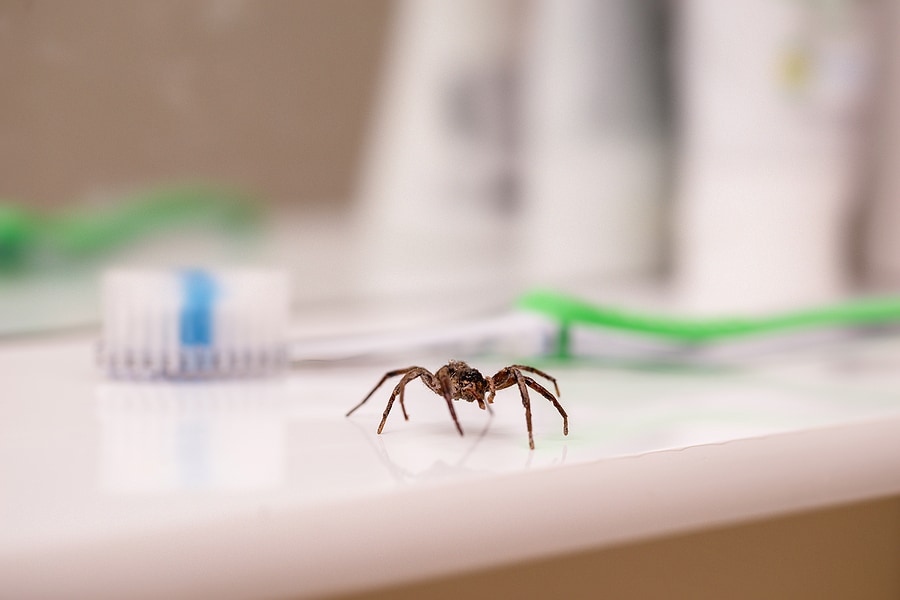READY TO GET STARTED?
REQUEST A FREE ESTIMATE
Fill out the form below or call (888) 466-7849 for a free, no-obligation estimate.

The thought of spiders in your home is enough to make anyone feel a little unsettled, but these household pests are actually beneficial to have around. They are a natural form of pest control, keeping other pest populations like mosquitoes and flies under control in and around your home. Although there are a few venomous spiders found in our area, most others are harmless and don’t pose a threat to you or your family. While it’s not realistic to expect to eliminate every spider from your home, you can make it less inviting for them to help keep them out without the use of harsh chemicals or pesticides. Here are 7 natural spider control remedies you can use around your home.
There are several plants you can place inside and outside your home to naturally deter spiders from coming around. Lavender, mint, eucalyptus, and citronella are known to deter spiders from building their webs near them. If incorporating these plants into your landscaping isn’t a possibility, you can also spray essential oils with these scents, in addition to peppermint or tea tree oil, anywhere spiders are a problem. You can also crush mint and place it in sachets inside your cabinets or other areas where spider activity is high.
Spiders are masters of hide and seek. They can be found hiding in cracks, crevices, cabinets, knotholes, behind baseboards, inside seldom used items in your home (such as shoes), under rocks, in woodpiles, and under piles of leaves and dirt. By getting rid of these hiding places you can encourage spiders to seek shelter somewhere besides in your home. Move leaves, grass clippings, compost and woodpiles away from your exterior walls. Dust and declutter your home on a regular basis. Frequently dust any areas where cobwebs appear. Organize your storage areas and get rid of any empty boxes.
Spiders spin webs to trap their prey as a food source. If you come across spider webs either inside or around your home, remove them as soon as possible. Eventually the spiders will move on and build their webs somewhere else.
While spiders aren’t attracted to your outdoor lights, other pests that they feed on are. Mosquitoes, flies, gnats, and other common prey for spiders are drawn to your outdoor lights, providing a literal buffet for a waiting spider. Keep your outdoor lights off as much as possible to help cut down on your outdoor pest populations.
Diatomaceous earth is a crumbly material made of the fossilized remains of an algae called diatom. DE can be sprinkled on the ground around your home and used as an insecticide. DE kills several pests in addition to spiders and can be used around your family and your pets.
There are some organic substances that work as natural repellents for spiders. Vinegar is a common one. The acetic acid in vinegar gives a sour taste and odor to spiders who come into contact with it. Mix equal portions of vinegar and water in a spray bottle and spray it around your home, especially in areas where pests may be getting inside. Citrus is also a natural spider deterrent. Keep citrus fruits in a bowl on your kitchen counter and use the leftover peels to rub onto your windowsills and doors to help keep spiders out.
Spiders can get in through the tiniest cracks and crevices in your home. Make sure to regularly inspect the exterior of your home and seal any places where pests might be gaining entry inside. Be sure to check doors and windowsills and use caulk or weatherstripping to seal any cracks and openings.
While most spiders don’t cause any problems in your home, they can become a nuisance, especially in your yard or garden. Webs can be built in inconvenient places; they can cover your plants or hide blooms, stunting their growth. If you have a problem with spiders or need some help getting them under control, contact your local pest control company for an evaluation.

Creepy and crawly, spiders can easily sneak into homes without you noticing. Most spiders that homeowners come across are harmless; but if you don’t take precautions, you can find them infesting your home. Below are some easy, do-it-yourself tips for spider prevention.
Clean Up Clutter
Spiders tend to look for dark, secluded areas to inhabit. You can often find them in rooms that have clutter, such as basements and attics. To keep these pests from infesting, keep garages, sheds, attics, basements, and other areas that aren’t utilized very often clean and clear of clutter.
In your regularly used rooms, be mindful of leaving clothes or clutter around the house. Try to avoid leaving clothes and shoes on the floor and instead, consider storing them in plastic bins. Shake out any clothing left on the floor and in the hamper.
Repair and Seal
The smallest gap or hole can allow spiders right into your home. Look around the inside and outside of your home and search for any open holes or gaps. Inspect your window screens, doors, and siding, as these are places that can provide openings leading inside.
If you find openings, seal them as soon as possible to eliminate the chance of these pests from entering. Make sure to inspect your house seasonally and provide any repairs.
Check Before Entering
Packages, secondhand furniture, and even groceries provide a perfect gateway inside homes for spiders. These pests will often hitch a ride on these items without you noticing. Make sure to inspect all packages delivered to your porch or steps, groceries as you unload them, boxes of decorations brought in from storage, and used appliances and furniture bought secondhand.
Spotting spiders can be difficult, but once you see them or suspect that you have a problem, it’s best to call your local pest control company to help eliminate and prevent them. A service professional will inspect the exterior and interior of the home to identify and provide you with the best plan of action to treat them.